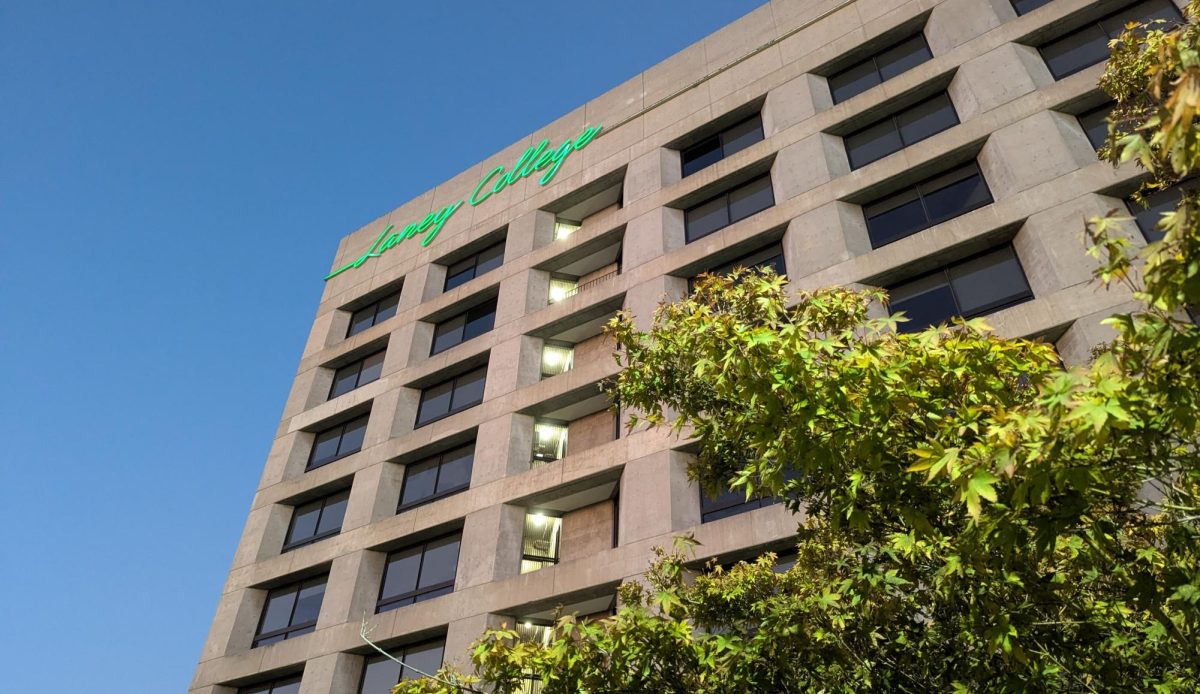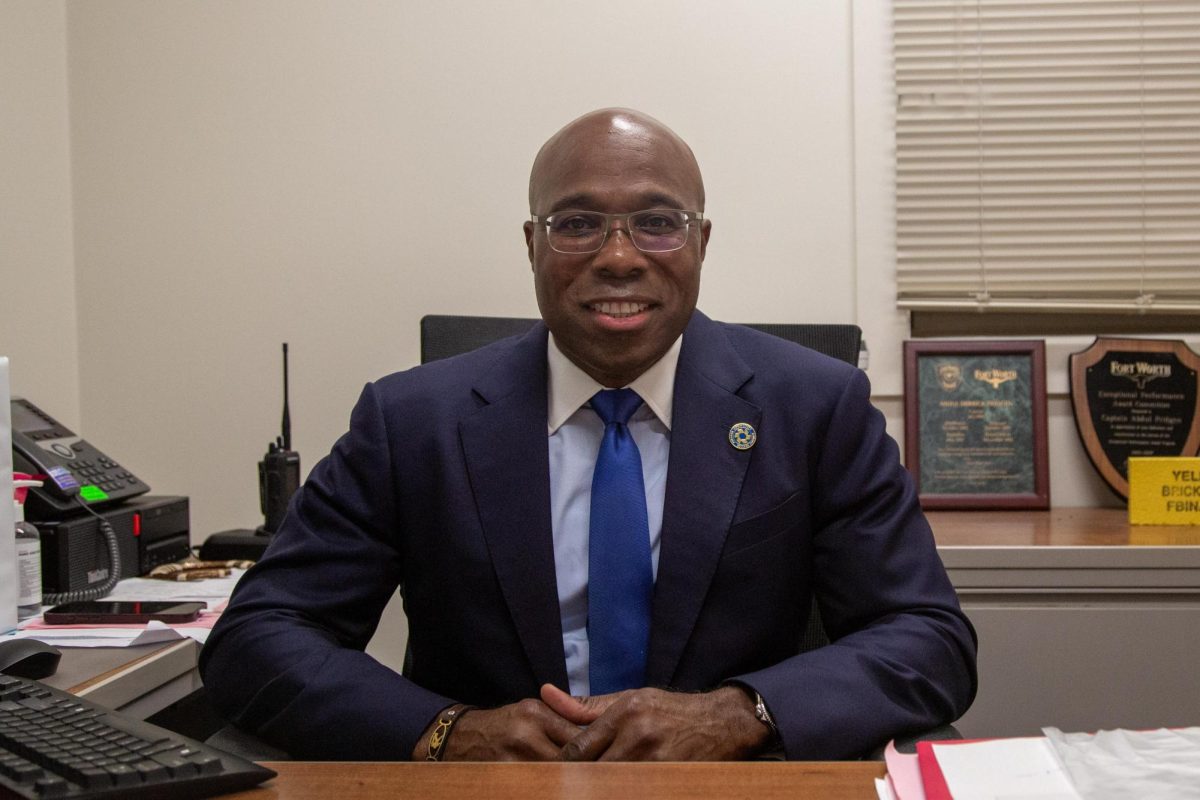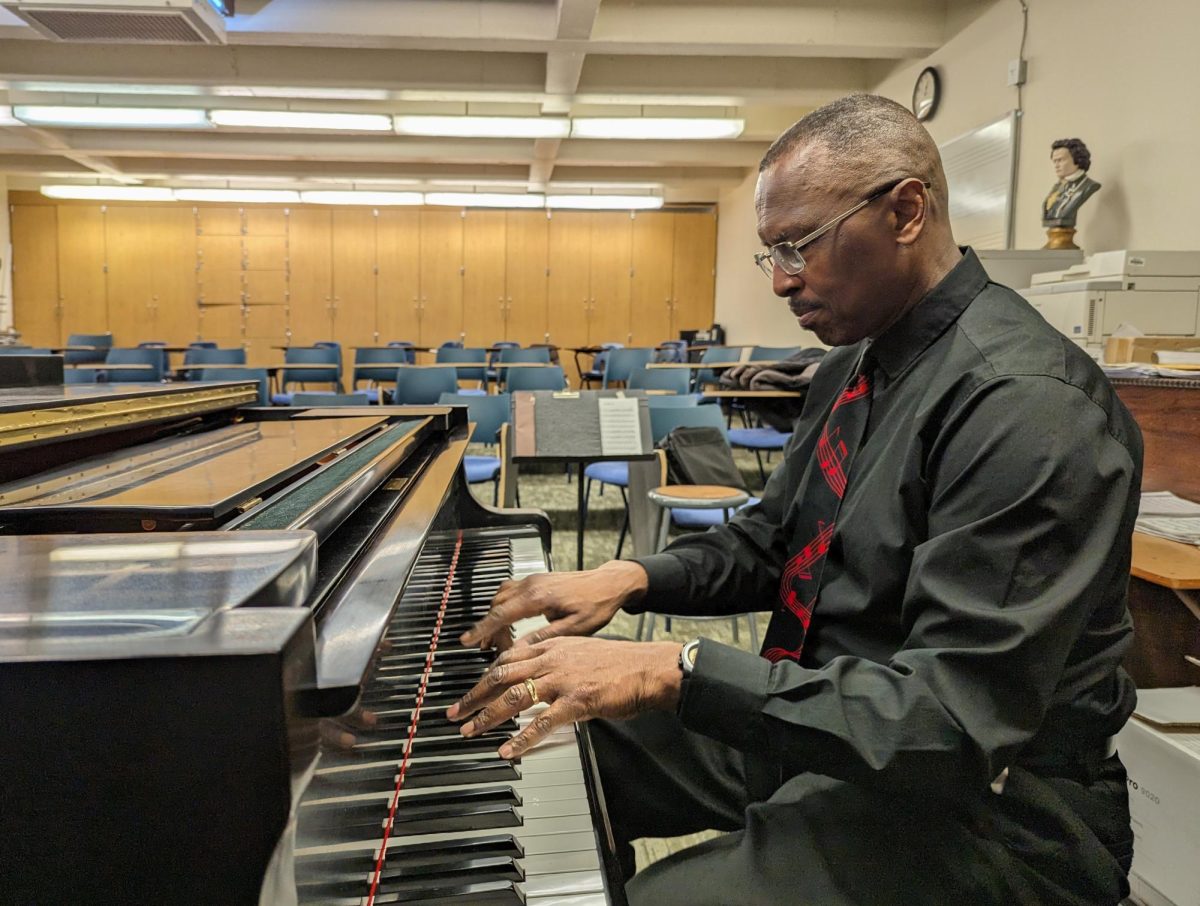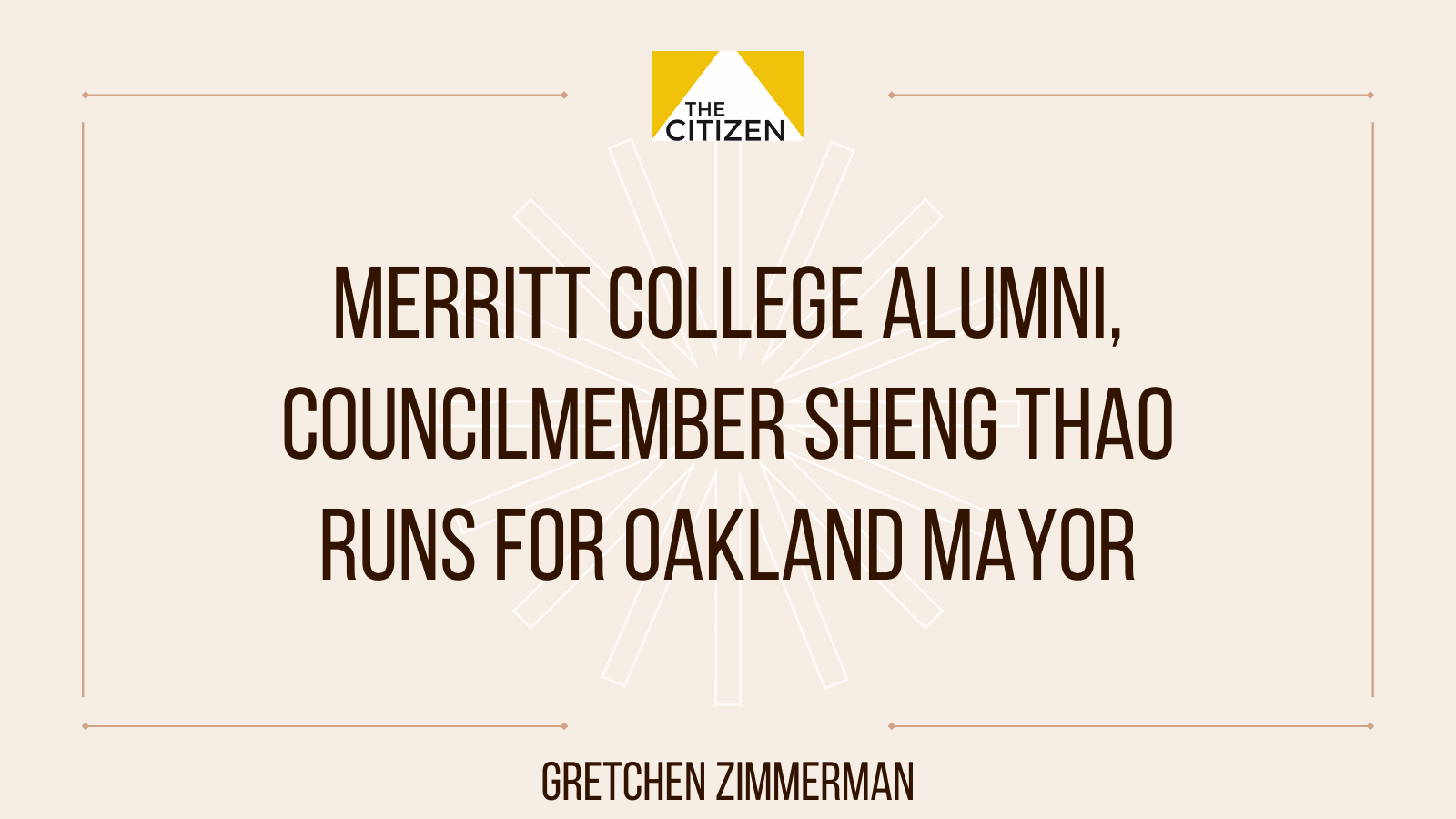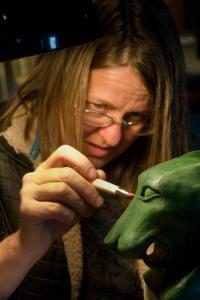When she graduated from high school, Sheng Thao moved to the Bay Area and took a break before applying to college. She found herself in an abusive and isolating relationship, which she ended to protect her unborn child. After leaving, she and her son experienced what has become a reality for many Peralta Community College District students and Oaklanders; she became homeless.
“Going to Merritt saved me. I was starting to believe in myself and understand my strengths in society.”
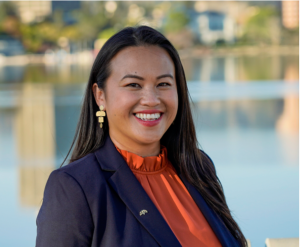
Thao enrolled at Merritt College, she says, to provide a better life for her son. She entered a paralegal program to get a certificate, a degree and ultimately a job to become a better provider. Although Thao says she was always a good student, she started realizing her potential when her professor called her after class to compliment her on her exam performance and encouraged her to aim higher. She remembers hearing “don’t stop at being a paralegal, if you want to go to law school you can totally do it,” from her professor.. Thao decided to complete her prerequisites to transfer to the University of California system after attaining her Paralegal credentials.
Thao was hired part-time as an assistant to Anika Toussant-Jackson, who worked in the Research and Planning department at Merritt at the time. “I looked up to her so much,” Thao said of Toussant-Jackson.
During her time at Merritt, Thao worked closely with young African American men in the Maximum Achievement Program, making sure that they had the resources they needed to be successful.
Thao graduated from Merritt with AA degrees in Paralegal Studies, Social and Behavioral Science, and Liberal arts, then continued on the path to higher education at UC Berkeley.
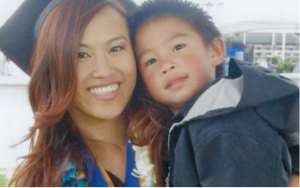
Political Career
At UC Berkeley, Thao discovered a capacity for organizing and political activism. Because she was a single mom, she says she understood the reality of being a “starving student” and teamed up with other students at UC Berkeley’s Student Learning Center to ask local eateries to donate leftover food. That movement became the foundation for what would become the Bear Pantry, which is now emulated as a model food pantry by other schools.
When Thao couldn’t afford to buy her son new clothes, she searched for a paid internship. She found the Asian Pacific Islander American Public Affairs (APAPA), a nonprofit group that focused on leadership and civic engagement. Although Thao knew nothing about APAPA, she was excited to learn that it paid interns a stipend of $1000 a month. At APAPA, Thao was assigned to assist staffers for Oakland council member Rebecca Kaplan, who is now Thao’s colleague.
“I didn’t know what government was. We didn’t get taught that in school. I realized this is the place where they make policies and regulations for people like myself, who are just struggling and surviving,” Thao explained.
Thao believes that her experiences of “being poor, being a single mom and going through domestic violence” gives her an insight of the people she is making policies for, that impulses her into a political career.
In her understanding, other council members were “learning my struggles through a textbook, and then making policies for people like myself” Thao said.
“That began my trajectory of wanting to create impact in policy.”
City Council Campaign
Thao became starkly aware of class divisions that hinder people like her from running for office when she launched her 2018 campaign for Oakland city council.
“I remember, this woman said: ‘Okay, you have to put down a list and open up your phone, and write down all your family members, all your friends, and you’ve got to call them for money’ I was just shocked. What am I doing? I’m kidding myself! I can’t do this. I can’t raise $100,000. Like, who do I know that’s going to give me money? Nobody, right? I can’t ask my parents, I’m buying their groceries,” Thao said.
But when Thao’s mom offered her a $200 donation to her campaign, she said she had a revelation:
“Who am I to not ask for that support from the community that needs it the most?When they’re investing in me, they’re investing in the hope that I become one of the people who make the decisions so that I can make their lives better. I realized it’s not about me. It’s about the bigger picture, the bigger fight around making sure that we create policies that are going to be positively impactful for people like my mom. That gave me a whole new energy to go out to run my 2018 campaign,” Thao said.
Thao ran her own campaign for the November 2018 Oakland city council election. Her campaign supporters, she states, were working families and labor unions.
“They knew that my values are embedded in making sure that our working families are the ones that are being lifted up and that their voices are heard at the decision making table,” Thao said. Thao’s biggest campaign contribution, $105,974 out of a total of $114,823, came from Unity PAC, a sponsored committee of the Alameda Labor Council, AFL-CIO.
How can we increase enrollment at Community Colleges?
As an elected official who is open about having attended community college, Thao does not understand the stigma associated with having attended a community college.
“The weird thing in society is that we somehow assume that right when you turn 18, or when you graduate high school, that you know what you want to do with your life, and you know who you are,” Thao explained, remarking that a career trajectory can widely differ from what you’ve studied, and that community colleges can be a great place to not only explore, but to make connections like the one she made at Merritt.
Thao advocates for the creation of pipelines between community colleges to local government and business in order to make it easier for students who have gone through the program to secure a job.
Housing/Homelessness
Thao has proposed an Enhanced Infrastructure Financing District (EIFD) to build affordable housing in the City of Oakland. She explained that market-rate housing tends to be built more quickly, while affordable housing usually requires waiting for state tax credits and other complications. The EIFD would allow affordable housing to be funded without taxing the taxpayers more than they are already taxed.
Thao understands that in order to afford housing, and be able to live in Oakland, people need jobs. For this reason, Thao says she wants to work with Community Colleges and High Schools to create “pipelines” in the form of internships with city government jobs, which she believes should be going to Oaklanders first.
“Every single department [in the City of Oakland] has at least a 20 to 25% vacancy. Why is it that these great union jobs are not ending up on the laps of Oaklanders?” Thao questioned.
Thao is working with multiple churches to either sell or lease their land for affordable housing units. She and her team are also brainstorming policies on Accessory Dwelling Units (ADUs), where the permitting fees would be waived for a homeowner who agrees to build a rent-controlled ADU.
“Having multiple avenues towards this housing crisis is going to be a moral imperative. Tent cities are not appropriate; it’s a moral crisis, Thao said.
“It’s not okay that people are dying on our streets because they don’t have housing.”
Police
Council member Thao has made a controversial proposal to help fill 60 vacancies at OPD by offering a $50,000 hiring bonus for experienced officers from other jurisdictions, and a $20,000 hiring bonus for new recruits from Oakland. She says she is working with police chief LeRonne Armstrong to refine this proposal, which she hopes will come back before the Oakland City Council in February.
According to Thao, Oakland is “hemorrhaging officers” during a nationwide shortage, the city invests millions to train their officers, only to have them hired away by other organizations. While these incentives sound expensive,the program would actually save money by keeping Oakland’s Academy graduates in Oakland, explained Thao. She and the chief are looking at ways to create incentives to keep good officers from leaving. New police hires would have to be vetted by a panel to make sure they have integrity and cultural sensitivity.
Thao stresses that her preference has always been to hire Oaklanders as police officers, and that Oaklanders should be policing Oaklanders because these are great paying jobs, and Oaklanders will have more understanding of the cultural norms of Oakland.
On running for Mayor
Thao, whose four-year term representing City Council District 4 expires soon, says her experience in Oakland City Council makes her the most qualified candidate. As Mayor, Thao believes that she can have a greater impact, since she would be able to direct city staff to implement programs in that position.
“All the City Council can do is pass policies and figure out where the money goes. I haven’t seen a lot of the great programs that we’re asking for being implemented,” Thao lamented.
She also stresses the importance of the Mayor and City Council member’s ability to work effectively and positively with each other and that her well established working relationships with her colleagues at City Hall will make the difference, independently of political sides.
“I truly just want to make our city function better for all Oaklanders.”


